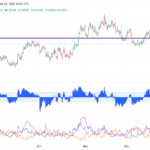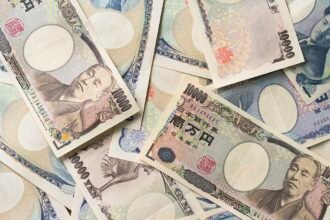On Tuesday, Asian currencies witnessed slight changes given a series of impending economic announcements. The yen was stable due to potential alterations in monetary guidelines, whilst the dollar made some recovery.
This is attributed largely to the ongoing outcome speculation of the Federal Reserve meeting and possible interest rate adjustments. Despite wavering stock markets, Chinese yuan and South Korean won remained steady.
The global market could experience significant impacts, with investors closely monitoring US interest rate changes. The Indian rupee witnessed a small increase amidst oil price upswings, affecting import costs.
The forthcoming monetary policy decision by the Bank of Japan greatly influenced the yen. The Australian and New Zealand dollars kept their positions steady against minor shifts in commodity prices.
The currency fluctuations in Asia also mirror the concerns over China’s economic growth slowdown and potential influence of U.S. presidential race’s on overall risk sentiment. The global trade recession and the possibility of a U.S.-China trade deal bring more uncertainty to Asian currency markets.
The yen sustained its stability against the dollar in recent weeks, with various potential outcomes of the forthcoming conference on monetary policies causing anticipation. If any alterations are made, the stature of yen might see improvements.
The varying opinions on the matter and recent currency valuation fluctuations called for widespread speculation among financial analysts.
Asian currencies: subtle shifts anticipating global impacts
Predicting the future of yen in relation to dollar requires strategic acumen as well as the acceptance of inherent uncertainties.
This week the dollar regained some strength and stability. The Federal Reserve’s Wednesday meeting stands as a pivotal focus. Investors are meticulously observing for any hints of future rate adjustments, which could influence the dollar’s market performance.
The inflation remains a key economic concern and any surge could indicate an earlier than expected interest rate hike. The job market appears to be rebounding, assuring a further recovery.
Trade dynamics and global relations are also key factors affecting dollar’s stability. Market players remain alert to policy changes and economic forecasts, which can provide insights into the future economy.
Overall, in the wider Asian currency landscape, the trend ranged from stable to slightly low. Despite economic concerns, the Chinese yuan stayed close to eight-month highs with minor alterations.
Other currencies such as the Australian dollar, South Korean won, Singapore dollar, and Indian rupee witnessed minor changes. Concurrently, the Japanese yen held firm in its position while the Taiwanese dollar showed mild recovery signs after recent instability. The cautious approach in the Asian currency market is largely due to anticipation of global economic and geopolitical influences.





















